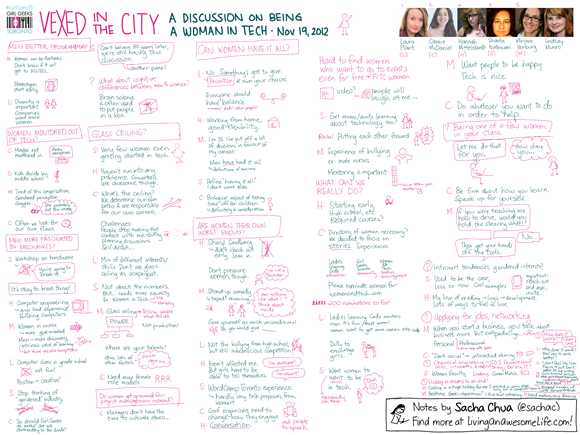I’ve talked about generations in the workplace, from myths to organizational shapes to moving forward. I’m with Luis Suarez on this one: can we move on from the generation-based conversations?
People are well-meaning, but it’s interesting to look at what we accept when we have these conversations. I think we’re much better off focusing on workplaces that can deal with all sorts of diversity – age, gender, race, lifestyle, and so on.
Take this post from the Harvard Business Review discussion threads:
Create Mutual Mentoring Relationships
Conflicts between Boomers and GenYs may feel inevitable. They have different approaches to getting work done, assumptions about how to do things, and philosophies about what work means. They also have a lot to teach each other. To help bridge the generation gap, pair people of these generations up and ask them to share what they know. This shouldn't be a "Teach me, Oh Wise Boomer" relationship but one in which the parties exchange knowledge and expertise. Gen Ys can show Boomers different uses for technology and how to integrate it into their work. More experienced Boomers can help Gen Ys better understand the history and culture of the organization. Creating mutually beneficial relationships can demonstrate what these generations have in common: a need to learn.
It’s a good point. I’m a fan of mentoring, and both people grow in the process. But it’s interesting to think about the dialogue we’re having, and the assumptions we accept. If we replaced age with, say, gender:
Conflicts between men and women may feel inevitable. They have different approaches to getting work done, assumptions about how to do things, and philosophies about what work means. They also have a lot to teach each other. To help bridge the gender gap, pair people of these genders up and ask them to share what they know. This shouldn't be a "Teach me, Oh Wise Man" relationship but one in which the parties exchange knowledge and expertise. Women can show men different uses for ______ and how to integrate it into their work. More experienced men can help women better understand the history and culture of the organization. Creating mutually beneficial relationships can demonstrate what these genders have in common: a need to learn.
… doesn’t that feel weird? What about race or culture?
Conflicts between Caucasians and Asians may feel inevitable. They have different approaches to getting work done, assumptions about how to do things, and philosophies about what work means. They also have a lot to teach each other. To help bridge the racial gap, pair people of these races up and ask them to share what they know. This shouldn't be a "Teach me, Oh Wise White" relationship but one in which the parties exchange knowledge and expertise. Asians can show Caucasians different uses for ______ and how to integrate it into their work. More experienced Caucasians can help Asians better understand the history and culture of the organization. Creating mutually beneficial relationships can demonstrate what these races have in common: a need to learn.
That just gave me the heebiejeebies. =)
Where’s the line? Where do we let generation-based discussions turn people into “others”? Where do we let age become an excuse? Wouldn’t it be cool to build a workplace where these things just aren’t issues, where we’re used to working with people who aren’t like us?
Talking about this stuff is better than not talking about this stuff. People have stereotypes about age, and those stereotypes affect all generations. (The ageism of the technology industry, the ageism of society in general…)
But we can do better than that, you know. We can treat it as normal that we work with people who are different from us and who have different experiences from what we have, and we can get better at recognizing not only the value other people bring to the organization, but also the value of the diversity of people in an organization.

